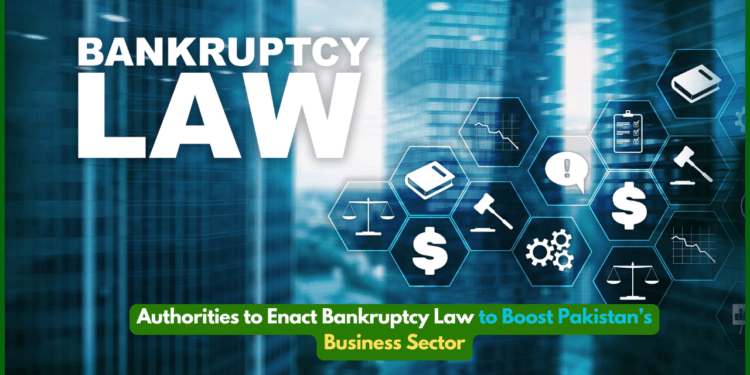Special Assistant to the Prime Minister for Industries and Production, Haroon Akhtar Khan, announced on March 12, 2025, that the Pakistani government is set to enact a bankruptcy law aimed at facilitating businesses and revitalizing struggling industrial units, marking a significant step toward economic reform. Speaking at a meeting hosted by the Lahore Chamber of Commerce and Industry (LCCI), Khan emphasized that reviving sick industrial units is a top priority for fostering business confidence and driving economic growth.
Khan underscored the government’s commitment to avoiding unilateral actions against the business community without consulting chambers of commerce, stating that restoring trust is crucial for national development. “The business community must be given the freedom to contribute to industrialization and investment,” he said, addressing LCCI President Mian Abuzar Shad, Vice President Shahid Nazir Chaudhry, former President Muhammad Ali Mian, former Senior Vice President Ali Hassam Asghar, and executive committee members present at the gathering.
Highlighting bureaucratic challenges, Khan pointed out that 29 departments are involved in regulatory processes, creating significant hurdles for industries. He noted the strong historical ties between the government and the business sector, citing that both Prime Minister Shehbaz Sharif and Deputy Prime Minister Muhammad Ishaq Dar had previously served as LCCI Presidents, reinforcing collaboration.
Reflecting on past economic successes, Khan recalled that during Nawaz Sharif’s tenure as prime minister in 1993, Indian Prime Minister Manmohan Singh had praised Pakistan’s economic reforms. He advocated for similar policies and stressed the importance of policy continuity, drawing parallels with China’s sustained development through consistent strategies. Khan also highlighted recent economic progress, noting that the markup rate had dropped from 22% to 12%, and the stock market was hitting new highs, though he called for greater focus on GDP growth and industrialization.
While acknowledging Pakistan’s ongoing engagement with the International Monetary Fund (IMF), Khan praised Prime Minister Sharif’s efforts in reducing power rates and expressed optimism for further declines in the markup rate. He emphasized creating safe havens for investors, with the prime minister keen to encourage local investment while attracting foreign capital. Khan proposed an incentive scheme for overseas Pakistanis to repatriate approximately $30 billion in declared assets, boosting foreign exchange reserves.
LCCI President Mian Abuzar Shad described recent meetings with the prime minister as highly productive but raised concerns about rising business costs due to escalating gas, electricity, and petrol prices. He urged reducing the policy rate to a single-digit range and highlighted industrial estate land prices, reaching Rs500 million per acre, as a barrier to expansion. Shad proposed complete vehicle assembly in Pakistan, developing local raw material industries with minimal duties, establishing Export Promotion Sectoral Councils, creating new Special Economic Zones (SEZs), and formulating a 20-year Industrial Master Plan.
LCCI Vice President Shahid Nazir Chaudhry called for regularizing industrial clusters and improving infrastructure in Quaid-e-Azam Business Park. Former President Muhammad Ali Mian advocated for incorporating LCCI budget proposals into the federal budget, while former Senior Vice President Ali Hassam Asghar highlighted the rice sector’s export potential, urging policy support to capitalize on it.
The proposed bankruptcy law, as outlined in recent legal analyses, aims to define insolvency clearly—where a person or firm cannot pay debts as they fall due—and provide a framework for creditors and debtors to resolve financial distress efficiently. This aligns with international standards, such as those in Pakistan’s Insolvency Act, and could help businesses restructure or liquidate assets, fostering a healthier economic environment, as noted in a legal report.
As Pakistan navigates economic challenges in 2025, this initiative signals a transformative approach to supporting businesses, potentially attracting investment and stabilizing industries. For the latest updates on the bankruptcy law and economic policies, follow government announcements, LCCI updates, or business news platforms.

















































